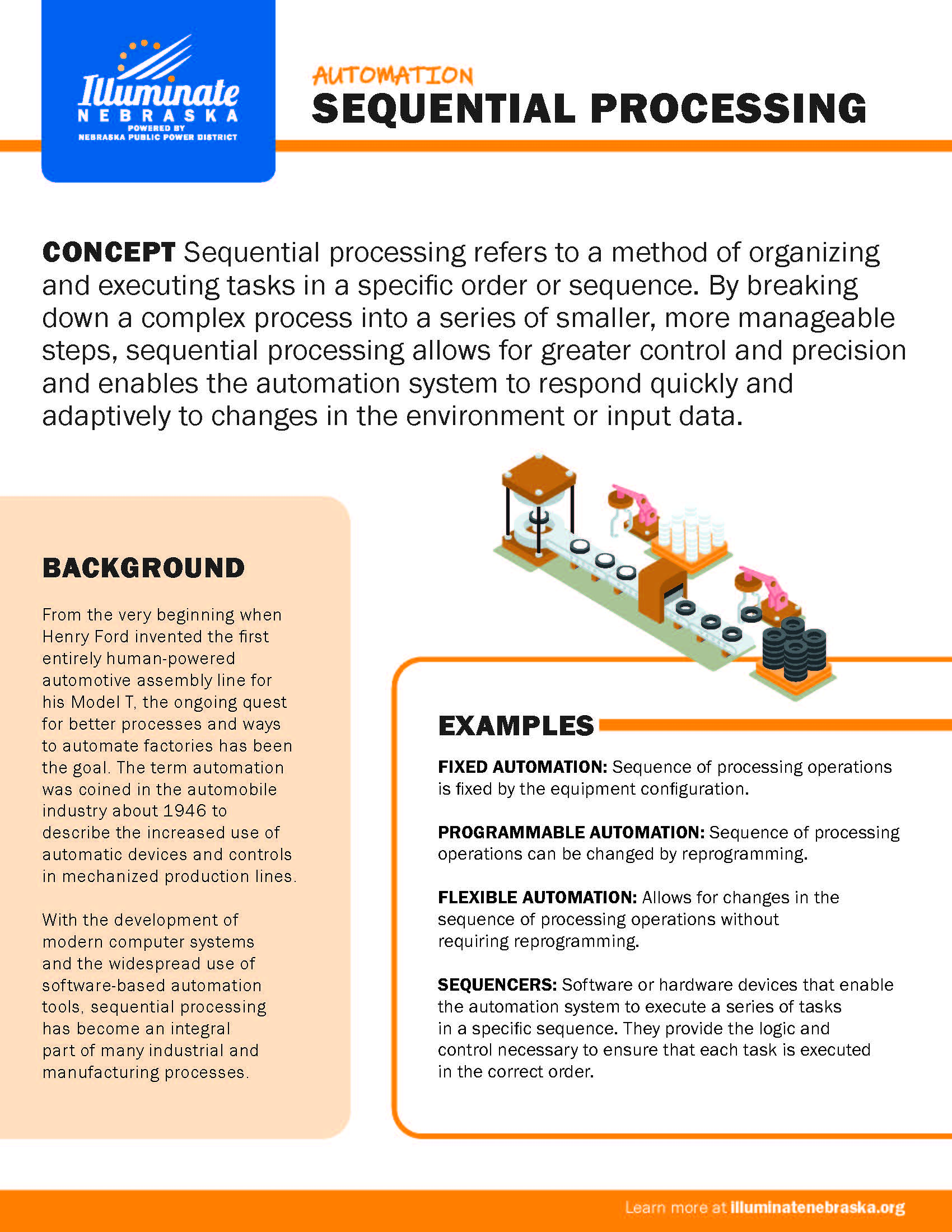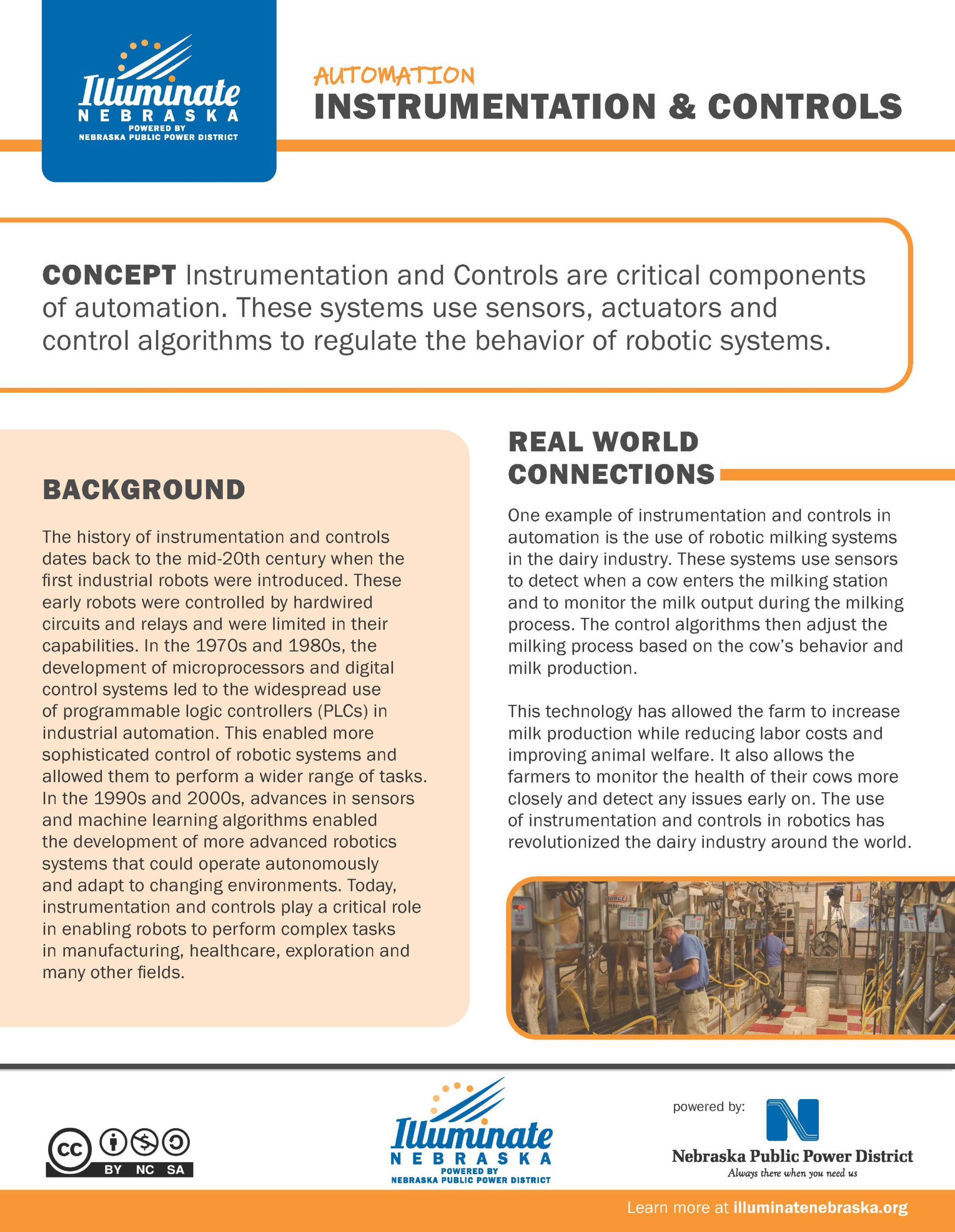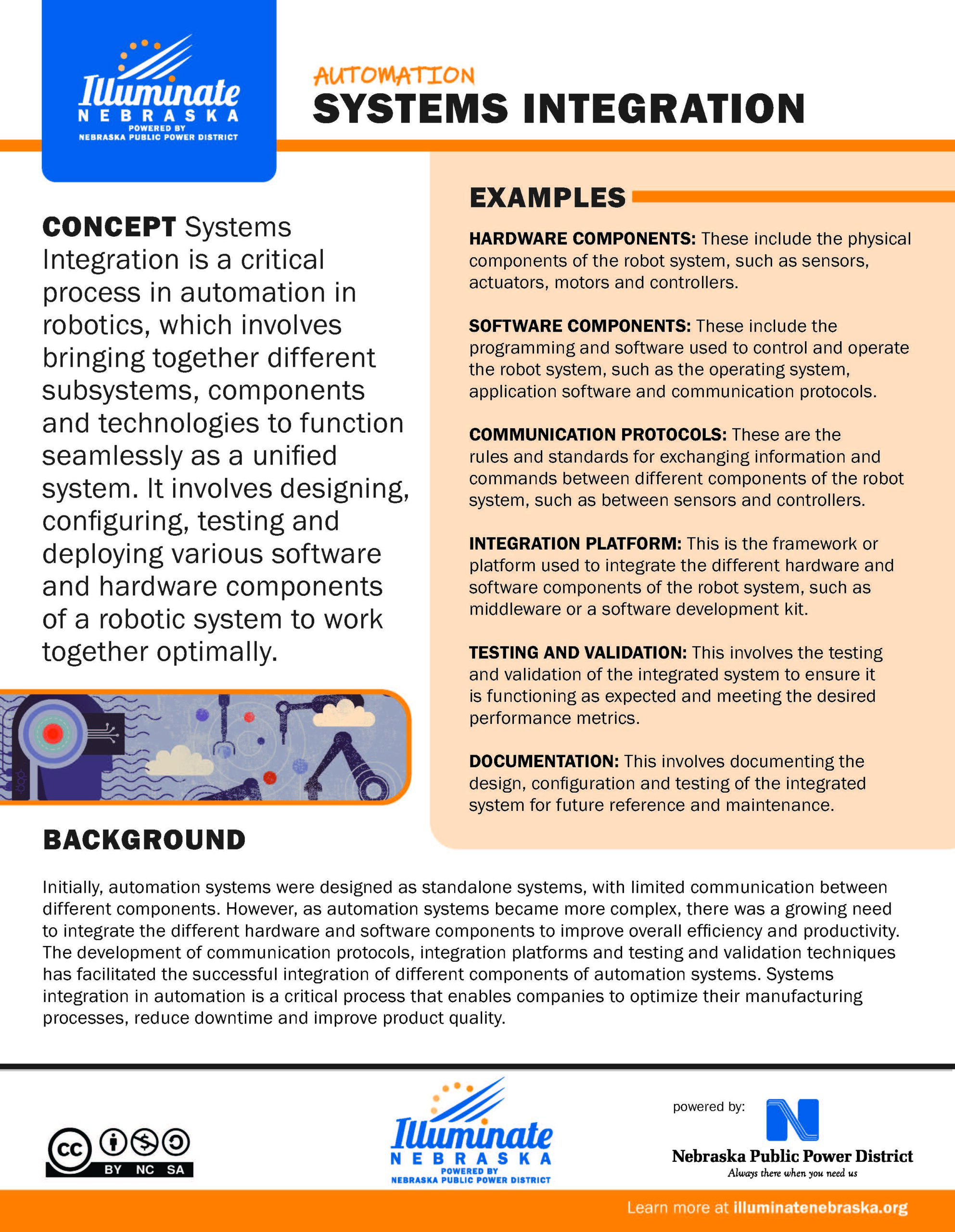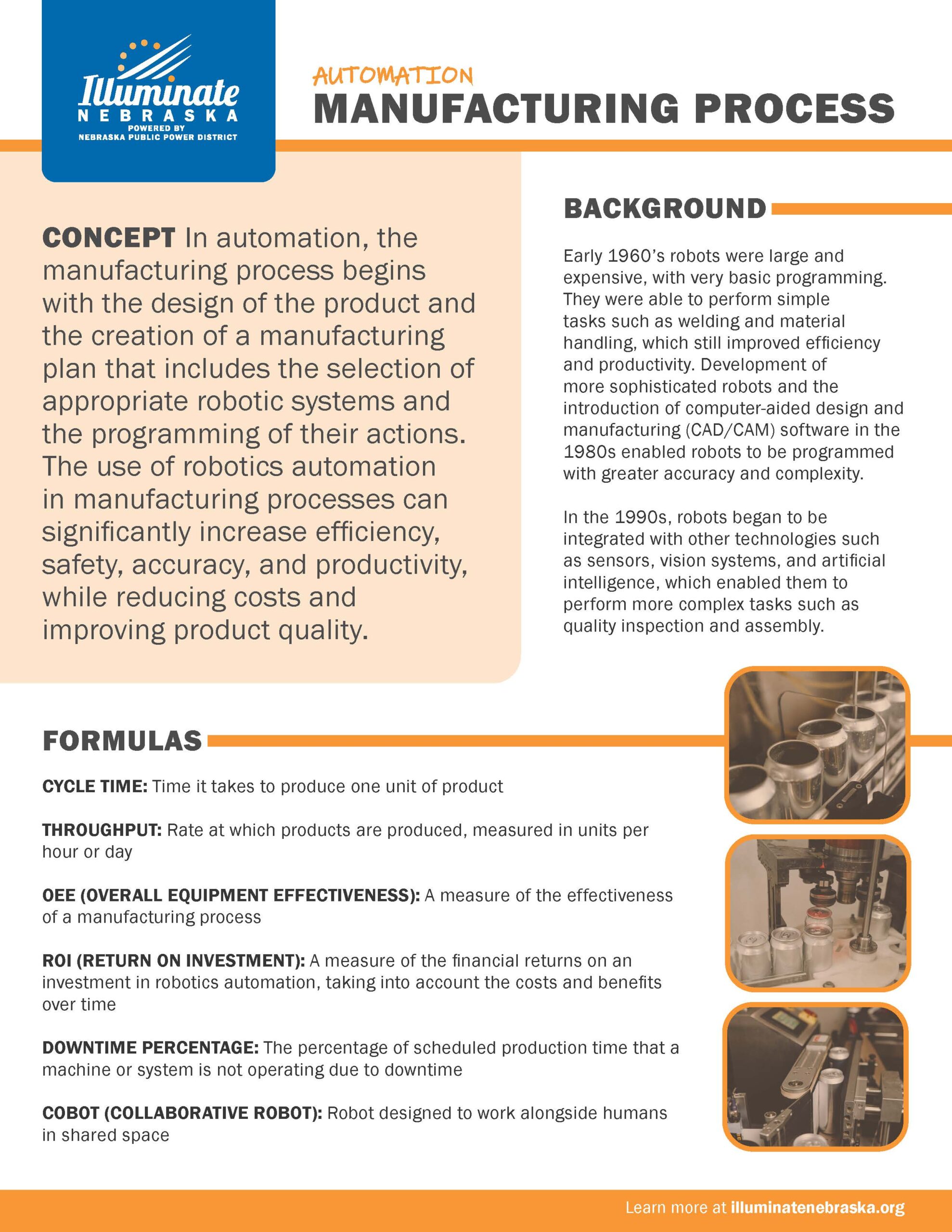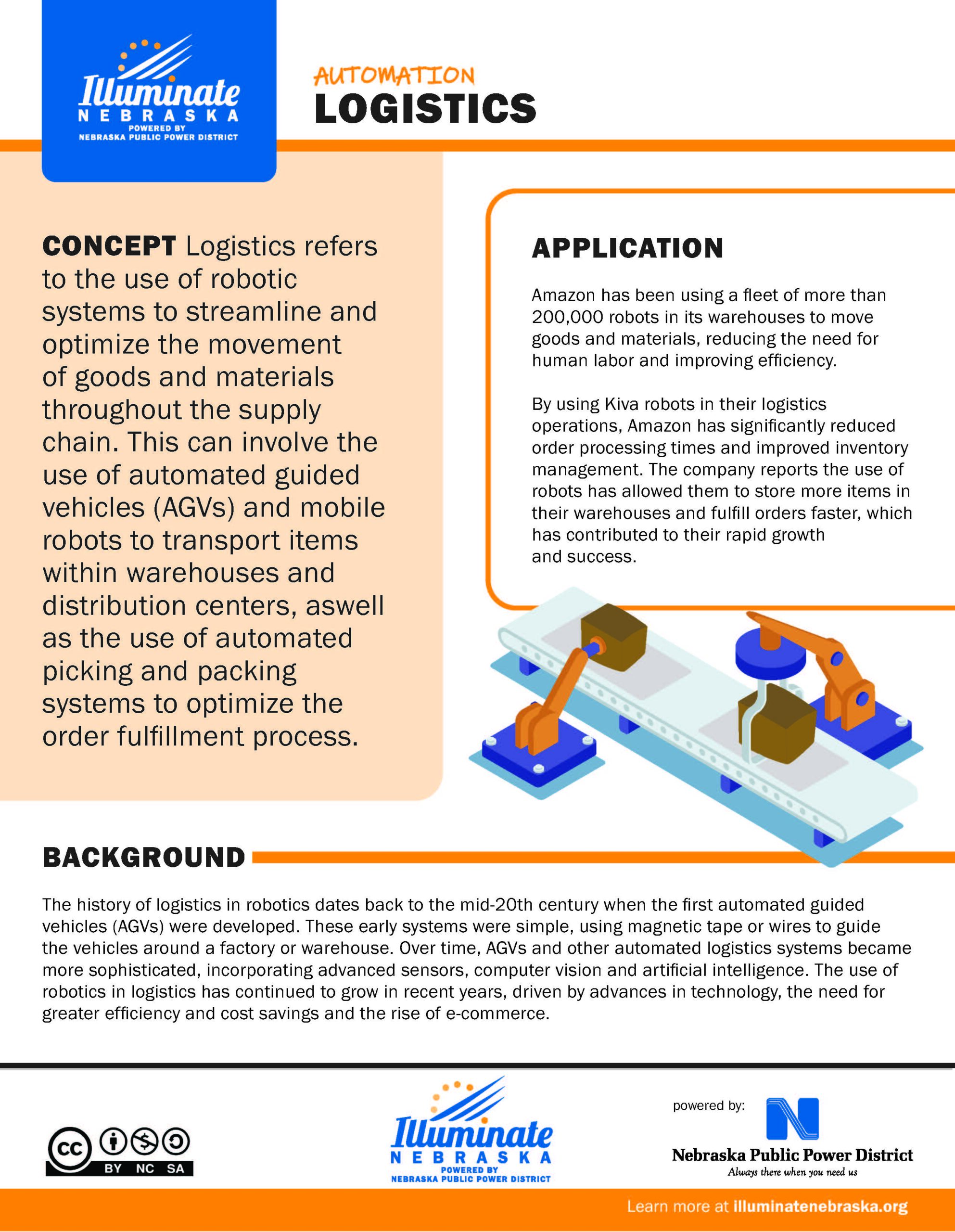Sequential Processing
Sequential processing refers to a method of organizing and executing tasks in a specific order or sequence. By breaking down a complex process into a series of smaller, more manageable steps, sequential processing allows for greater control and precision and enables the automation system to respond quickly and adaptively to changes in the environment or input data.
Instrumentation & Controls
Instrumentation and Controls are critical components of automation. These systems use sensors, actuators and control algorithms to regulate the behavior of robotic systems.
Systems Integration
Systems Integration is a critical process in automation in robotics, which involves bringing together different subsystems, components and technologies to function seamlessly as a unified system. It involves designing, configuring, testing and deploying various software and hardware components of a robotic system to work together optimally.
Manufacturing Process
In automation, the manufacturing process begins with the design of the product and the creation of a manufacturing plan that includes the selection of appropriate robotic systems and the programming of their actions. The use of robotics automation in manufacturing processes can significantly increase efficiency, safety, accuracy, and productivity, while reducing costs and improving product quality.
Logistics
Logistics refers to the use of robotic systems to streamline and optimize the movement of goods and materials throughout the supply chain. This can involve the use of automated guided vehicles (AGVs) and mobile robots to transport items within warehouses and distribution centers, aswell as the use of automated picking and packing systems to optimize the order fulfillment process.

